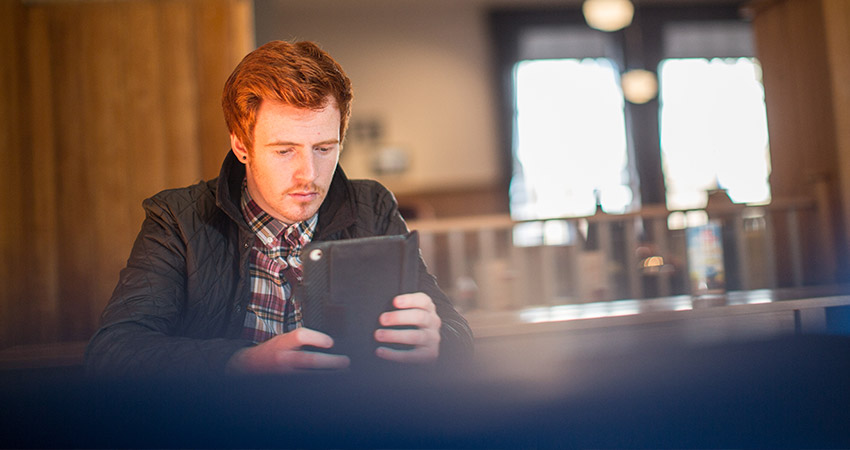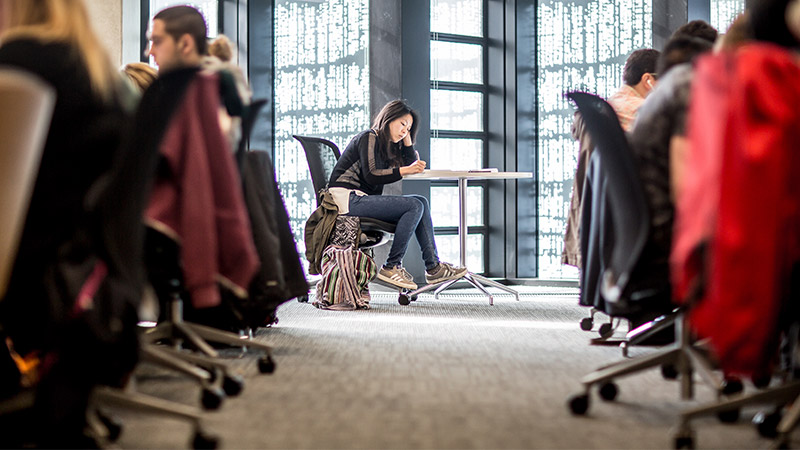History and History of Art (joint honours)
BA (Hons)
Key facts
UCAS code
VV13
Start dates
September 2026
Location
Course length
Full time: 3 years
Part time: up to 6 years
UCAS Tariff Points
112
Overview
Our joint honours course allows you to pursue your own areas of interest within History and History of Art whilst also providing you with a solid foundation in the disciplines which will serve as a springboard for your future career development. The programme is carefully designed to enable you to gradually develop your knowledge and skills and become an effective and independent learner.
History is about far more than studying the past. It enables you to discover why people act the way they do and explore how societies develop. History of Art at Brookes places a particular stress on the study of works of art and buildings first-hand, with almost all modules including guided visits to sites in Oxford or London.
Links between research and undergraduate teaching are an important and distinctive feature of the programme, and the combined research experience and competencies of staff have shaped its design, content and delivery.
We are Top 10 in the UK: History and History of Art is ranked 8th in the Guardian History of Art subject league ranking 2025.

How to apply
Wherever possible we make our conditional offers using the UCAS Tariff. The combination of A-level grades listed here would be just one way of achieving the UCAS Tariff points for this course.
Standard offer
UCAS Tariff Points: 112
A Level: BBC
IB Points: 27
BTEC: DMM
Contextual offer
UCAS Tariff Points: 88
A Level: CCD
IB Points: 24
BTEC: MMM
Further offer details
Applications are also welcomed for consideration from applicants with European qualifications, international qualifications, or recognised foundation courses. For advice on eligibility please contact Admissions: admissions@brookes.ac.uk
If you don’t achieve the required tariff points you can apply to join a foundation course, like Foundation in Art and Design or an international foundation course to help to reach the required level for entry into this degree.
Entry requirements
Specific entry requirements
Applications are welcomed from candidates with alternative qualifications, and from mature students.
Please also see the University's general entry requirements.
English requirements for visas
If you need a student visa to enter the UK you will need to meet the UK Visas and Immigration minimum language requirements as well as the University's requirements. Find out more about English language requirements.
Terms and conditions of enrolment
When you accept our offer, you agree to the Terms and Conditions of Enrolment. You should therefore read those conditions before accepting the offer.
Credit transfer
Many of our courses consider applications for entry part-way through the course for students who have credit from previous learning or relevant professional experience.
Find out more about transferring to Brookes. If you'd like to talk through your options, please contact our Admissions team.
Application process
Full time Home (UK) applicants
Apply through UCASPart time Home (UK) applicants
Apply direct to the UniversityInternational applicants
Apply direct to the UniversityFull time international applicants can also apply through UCAS
Tuition fees
Questions about fees?
Contact Student Finance on:
Tuition fees
Please note, tuition fees for Home students may increase in subsequent years both for new and continuing students in line with an inflationary amount determined by government. Oxford Brookes University intends to maintain its fees for new and returning Home students at the maximum permitted level.
For further information please see our tuition fees FAQs.
Tuition fees for International students may increase in subsequent years both for new and continuing students.
The following factors will be taken into account by the University when it is setting the annual fees: inflationary measures such as the retail price indices, projected increases in University costs, changes in the level of funding received from Government sources, admissions statistics and access considerations including the availability of student support.
How and when to pay
Tuition fee instalments for the semester are due by the Monday of week 1 of each semester. Students are not liable for full fees for that semester if they leave before week 4. If the leaving date is after week 4, full fees for the semester are payable.
- For information on payment methods please see our Make a Payment page.
- For information about refunds please visit our Refund policy page
Financial support and scholarships
Additional costs
Please be aware that some courses will involve some additional costs that are not covered by your fees. Specific additional costs for this course are detailed below.
Learning and assessment
Modules fall into three categories:
- Practical, designed to develop students’ skills, ideas, and identities as artistic practitioners.
- Historical, designed to develop students’ historical understanding of the visual arts and their contexts.
- Employment-focused, designed to prepare students for the world of work, both in theory and through direct experience of workplace situations and contact with professionals in the arts.
Practical modules focus on creativity, experimentation, and intellectual pursuit. You will develop a rigorous, experimental creative practice that is underpinned by a deep understanding of the concepts, theories and ethics that are important in today’s world.
The historical modules cover the period from the Renaissance to the twentieth century and focus on developing a historical understanding of artworks and their contexts. Oxford is an excellent place to study the history of art, with outstanding local museums and galleries. London, with its wealth of museums, is also just a short journey away.

Learning and teaching
- Lectures underpin your historical and theoretical understanding, and discussions within lectures allow you to process and interrogate your own learning.
- Seminars give you the opportunity to discuss examples, texts and ideas and raise questions about material covered in lectures.
- Workshops introduce you to methods and techniques in creative art practices.
- Group tutorials focus on your research issues, concerns, methods and progress within a group setting.
- Individual tutorials with your lecturers encourage you to reflect upon and utilise your developing academic, research and personal literacy skills, to transfer prior learning into new contexts.
- Self-Evaluation teaches you how to develop critical self-awareness through processes of self-evaluation and you are required to write a ‘self-evaluation report’ for each practice module.
- Summative tutorials require you to present either resolved or in-progress experimental work and provide feedback on each other’s practice.
Field trips
Field trips are given prominence within the programme. They feature in many modules and we typically visit local or regional sites of artistic importance, whether galleries, buildings, events or festivals. The Field Work in Art History module takes the form of an extended visit to an important European artistic centre, usually Paris. Field trips enable students to experience artefacts first-hand and gain a greater understanding of their institutional, historical, and professional contexts. They also enable you to relate your own practice to current and emerging practices and technologies and global trends.
Assessment
Assessment methods used on this course
Assessment is conducted through a wide variety of methods to foster a range of transferable skills and to ensure that you have some capability to choose those that suit you best. Assessment types include:
- Practical work which is assessed in the light of the accompanying written self-evaluation and workbook/portfolio. End of Year Exhibitions held at the end of Semester 2 give all year groups the opportunity to present their practical work to a wider audience.
- Portfolios which may take several forms: a workbook, a clearly labelled dossier with key and introductory text; a USB with ‘PowerPoint’ files, a website, or photographs.
- A range of written assignments, from essays to exhibition reviews, from creative writing to reflective diaries, all of which develop written communication skills.
- Spoken presentations which build confidence and develop presentation and oral communication skills.
- Exhibition curation which is foregrounded in the compulsory Curatorial Practice module.
Study abroad
You may be able to go on a European or international study exchange while you are at Brookes. Most exchanges take place in the second year. Although we will help as much as we can with your plans, ultimately you are responsible for organising and funding this study abroad.
After you graduate
Career prospects
Regular career events give students the chance to meet with recent graduates and hear about their experiences, and a LinkedIn page allows them to follow and contact graduates.
If students opt to take the programme in the four-year sandwich mode, they will be able to spend a year during the degree either working in a placement or series of placements or studying at a university abroad. These offer great opportunities for developing employability skills and, in the former case, networking and building contacts.
This course is appropriate for careers in a range of cultural roles such as artist, curator, journalist, arts manager, gallery assistant, and teacher, as well as being appropriate for postgraduate study.
Information from Discover Uni
Full-time study
Part-time study
Programme changes:
On rare occasions we may need to make changes to our course programmes after they have been
published on the website. For more information, please visit our
changes to programmes page.
